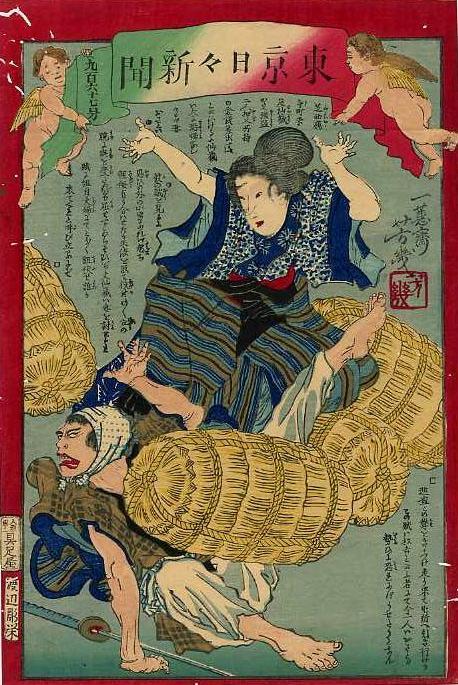Commentary
This is one of several news nishikie that celebrate the courage and fighting spirit of women.
Notes
armed thieves reflects 強盗 (gōtō), which therefore means (because it defines) "robbers". The term is also used to designate the act of armed theft or robbery.
Shiba Saiojicho (芝西寺町 Shiba Saioōjichō) is now part of Shiba 2-chome in Minato ward in Tokyo.
rice bags reflects 米俵 (komedawara). The bags that Osato is shown to be throwing appear to be of a standard size that probably weighed at least 50 kilograms.
Though taxes and stipends were collected and paid in units of 1 koku (石), which typically consisted of two bags (俵 hyō), the amount of rice in one bag varied somewhat with period and place. Toward the end of the Meiji period, 1 bag was standardized at 4 to (斗) or 60 kilograms.
Present-day standard measures of rice
1 gō (合) = 180 milliliters = 150 grams
1 shō (升) = 10 gō = 1.8 liters = 1.5 kilograms
1 to (斗) = 10 shō = 18 liters = 15 kilograms
1 hyō (俵) = 4 to (斗) = 72 liters = 60 kilograms
1 koku (石) = 10 hyō (俵) = 180 liters = 150 kilograms
station house reflects 屯所 (tonsho), an early Meiji term for a place where police were stationed and quartered.

